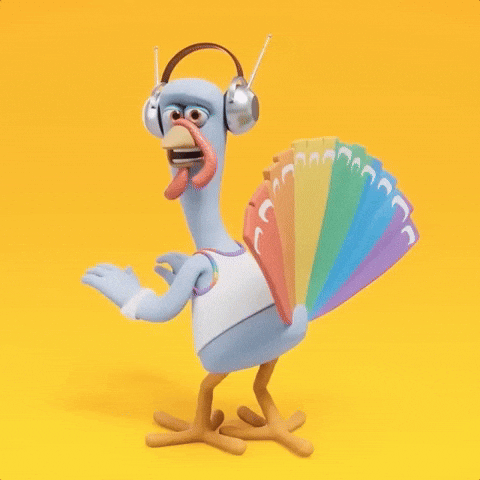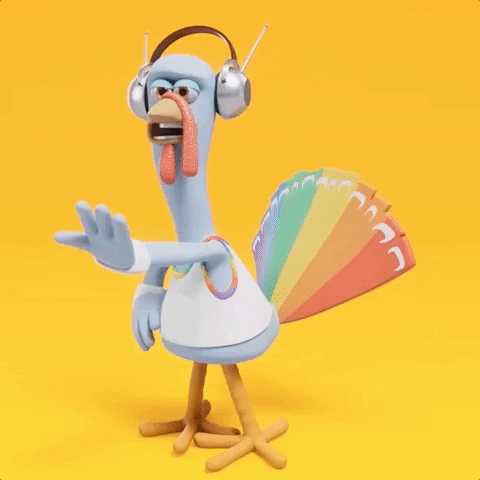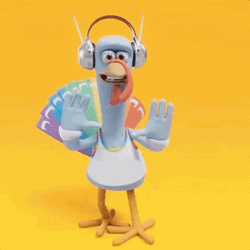🐔 The Cis Chicken Incident: How Political Correctness Murdered My Punchline — and Almost Killed Empathy Too
TL;DR: We broke political correctness by forgetting why it mattered in the first place
- 🎭 It started as empathy, ended as performance. Political correctness lost its soul when context stopped counting.
- 🐔 Even absurd jokes feel risky now. (Yes, even poultry puns.)
- 🧹 Sanitizing language erases perspective. It doesn’t teach progress; it scrubs away connection.
- 💛 Inclusion requires grace, not perfection. Acceptance means leaving space to screw up.
- 🚧 “Correctness” became a weapon. We’re dividing instead of uniting.
- 🙃 If calling a cartoon bird a “cis chicken” feels like social suicide… maybe sometimes suicide's the answer...


It happened during a perfectly normal work meeting.
The dev team was talking through a story-pointing session and someone asked whether a new tool might run afoul of our CISO policies.
So, naturally, I typed in the Teams chat: "a fowl." And posted this image:

It’s an animated turkey. Wearing headphones. Flapping dramatically like it was either deep into house music or arguing on a podcast about distributed architecture. As you might expect (if you have a sense of humor), someone responded: "Is that a chromatic turkey or a bizarre peacock?"
I almost replied, “It’s a cis chicken.”
I was about to hit enter on the post. But then I didn’t.
Why? Because I was afraid. Even though it was clearly a surreal, deadpan joke, someone, somewhere, might take offense. And that’s the moment that stuck with me. Not the bad joke. Not the ridiculous turkey. But the self-censorship...
I paused because I didn’t trust the room to give me grace. My own team that I like and with whom I work everyday. I didn’t trust that my inane comment would be taken as absurdity. And I realized: we've lost our ability to assume good intent from one another.
✅ What Political Correctness Gets Right
Let’s be clear: Political correctness didn’t start out this way.
The original idea was simple and good:
- Treat people with respect.
- Don’t use slurs or implicitly insulting language.
- Don’t punch down.
- Acknowledge the harm that careless language can do.
- Use language to uplift those who’ve been pushed to the margins.
That still matters.
People who reject all forms of PC as if empathy is a threat are missing the point. And often just want a free pass to be cruel. That’s not this post.
This post is about what happens when that good idea becomes a rigid performance. When kindness turns into a zero-tolerance compliance test. When context stops mattering, and all that counts is whether the exact right phrase was used at the exact right time in the exact right tone.
It’s no longer enough to be respectful. Now you have to be fluent in the latest terminology, self-censor on instinct, and pre-apologize for jokes that might be misunderstood if someone chooses to assume the worst.
❌ Where It Goes Wrong
This is where it falls apart.
- When we stop assuming good intent (or at least no ill intent)...
- When we treat every misstep like a red flag instead of a moment for connection...
- When we can't see the fallibility in those around us (and ourselves)...
We don't just protect the vulnerable. We isolate everyone.
When we edit ourselves not because something is harmful, but because it might be read that way, we flip the script.
The language of protection becomes a tool of separation. It doesn’t stop oppression; it just shifts the fear. Suddenly everyone is afraid to speak. Afraid to joke. Afraid to be human.
We trade clarity for caution.
Meaning for performance.
Empathy for optics.
And the worst part?
You can't be real without risk. Being real requires vulnerability and trust. And if taking that risk gets you punished, authenticity disappears.
Every man... Every person really does become an island.
💰 The Cost
We started with good intentions: use language to build bridges, create understanding, offer respect. We wanted shared tools to help us connect.
But somewhere along the line, we stopped listening for intent and started policing phrasing. We built a culture where sounding wrong matters more than being wrong.
Now, we’re more cautious, but not more empathetic. More polished, but not more honest.
We’re so afraid of offending anyone that we don’t talk at all, unless we’re sure it’s safe. Even then, one honest moment might get misread and weaponized. Entire conversations die before they begin.
And the worst part?
The same people who championed inclusion are now sometimes the fastest to exclude.
One wrong word — even without malice — and suddenly you’re a bigot. A social problem. Once you’re labeled, your values don’t matter. Your actions don’t matter.
What started as a movement for kindness has become a zero-sum purity test.
And here’s the kicker:
Nobody passes. Not even the people writing the test.
🏆 How to Get It Right
A simple shift in our thinking could put us back on track.
- THINK. Don't just react with criticism and outrage. What did the person really mean? Who are they? Do they usually act like a bigoted asshat or was it a thoughtless moment?
- UNDERSTAND. Let people screw up. Let them joke. Let them ask clumsy questions. Let them make stupid “cis chicken” jokes. Humans make mistakes.
- COMMUNICATE. If something does bother you, don't just sit quietly. Open a dialogue and explain your side. Ask what they intended. Don't assume they're a "bad guy" based on a single flippant aside.
In short, call them in, not out.
And let’s be honest: if you can’t laugh or roll your eyes at a turkey in headphones being called a “cis chicken,” maybe the joke isn't the only problem...
🉑 True Acceptance Includes Room for Mistakes
Real acceptance isn’t a checklist or a script. It’s not about using the right words to unlock the social approval door.
It’s messy. Imperfect. Human.
You can’t divide your way into empathy. You can’t shame someone into connection. And you sure as hell can’t build inclusion if everyone's afraid to be themselves.
Because when we lose the freedom to be a little weird, a little off, or a little wrong?
We lose the freedom to be real.
And that’s not progress. That’s fear, wearing a friendly name tag.
DISCLAIMER: No poultry (or feelings) were harmed in the making of this rant.
💌 Want more snark in your inbox? Follow Snark Floats to get notified when new rants go live.